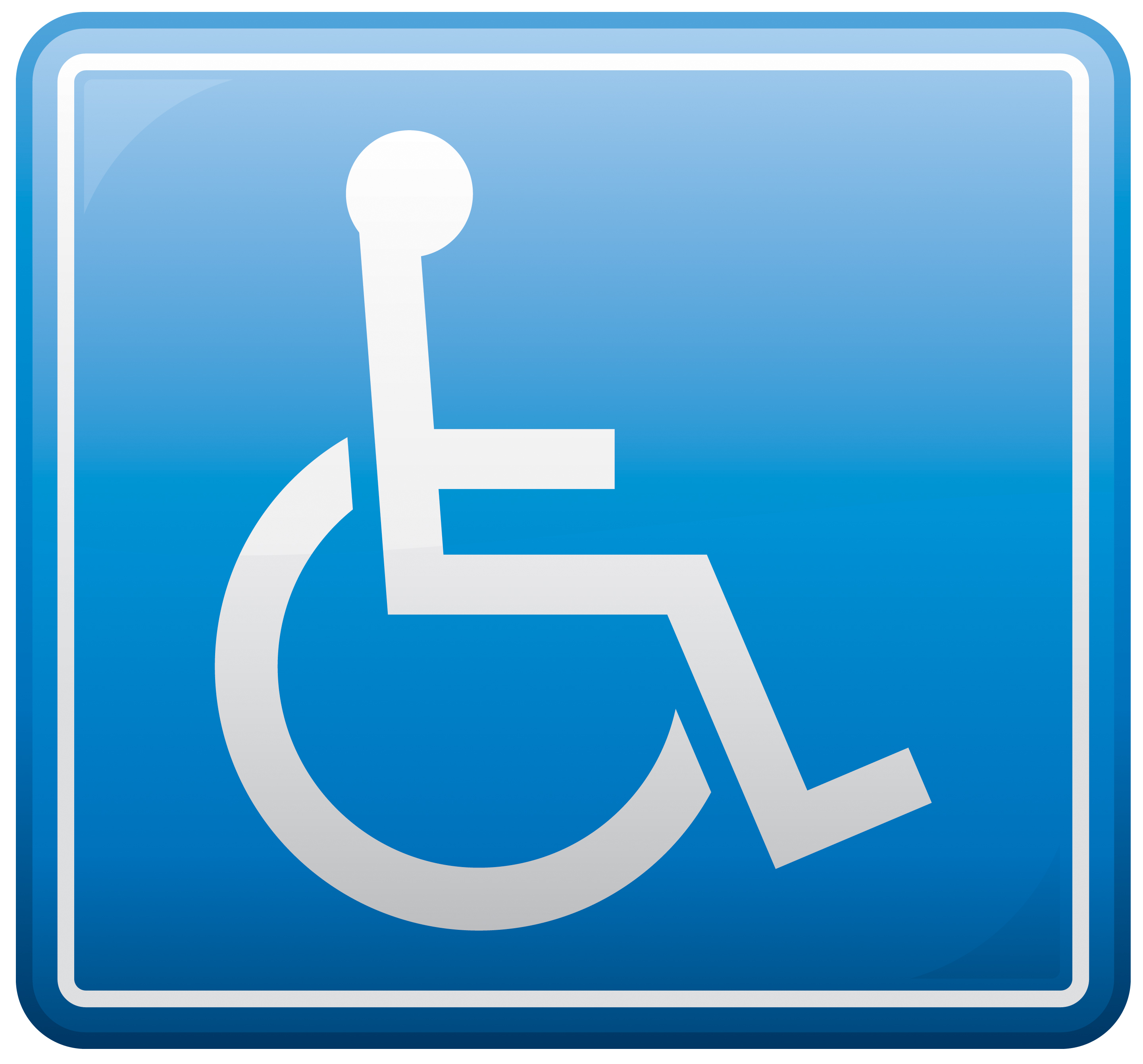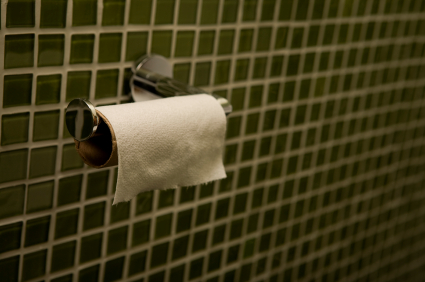AARP Hearing Center
By Dick Weinman, The Thin Edge of Dignity
One of the ways I’m assisted in my Assisted Living Facility (ALF) is usually not spoken about in public discussion. It’s considered a forbidden topic in social circles – not de rigueur. (Although the popularity of the erotic novel, Fifty Shades of Gray may change that; Jon Stewart’s bleeped monologues already have.) But it’s excruciatingly important to me, so I ask your indulgence. I hope you won’t be offended by this particular need of an eighty-year-old disabled man. It’s a personal, intimate kind of assist, one that creates a conundrum for me in my social relationships.
The anatomical difference between male and female has been common knowledge since childhood. One result is in that of waste disposal: men and boys can urinate anywhere, preferably over a urinal, but behind a tree works; so does against a wall; into the gutter; even off a bridge. It all depends on urgency, level of drunkenness, and whereabouts at time of need. All a male needs to be able to do is stand – and even that’s been remedied for those in wheel chairs – but not me.
One reason I need to be in an ALF, is that because of my hand disability I can’t grasp a zipper and unzip it, and because I’m wheelchair bound, I can’t stand. My dilemma – I can’t pee like a man pees. I can’t extract the organ of elimination and do my business, because as you’ve read earlier, the fingers of my left hand are immovable, and the fingers of my right hand don’t fully open. No way I can pull my – choose - the kiddie word, Webster’s word, the Urban Dictionary word, or the politically correct euphemism- out of the zippered, narrow slit of my fly. What to do?

My only option for bladder elimination, then, is to sit on the toilet, and pee like a woman. Sitting, I can do. That’s OK. It’s preparing to sit that requires ALF residency. My pants need to be lowered. I can’t do that.
That’s what a caregiver is for. A professional – at least paid - most often female twenty-something college student, whose heart is committed to the care of people like me (Or so I hope). Unfortunately, not all the caregivers’ hearts are committed to our care. Some need a part-time job - that’s it. Some need volunteer hours as a class requirement – not too bad. Some need a line on a resume to show a well rounded persona – a little better. Some need health care experience to be admitted to nursing school - far better. The motivation that’s essential to us, the residents of the ALF, is that “care” not be merely an assist, but a heartfelt desire to help another person.
The caregiver readies me to be seated on the toilet. She helps me get up from my wheelchair, and stand with my back to her. I grasp the aluminum handicap rail with my right hand, feeling the cold, slippery, metal rubbing against my palm. I hold tightly so as not to have a fall. (It seems old people don’t just fall. We have a fall.) Falling – or having one - would initiate an invasion of EMTs and firefighters, an avalanche of paperwork for the caregiver - filling out and filing forms, reports, testimonials, confessionals, etc. besides, if I had a fall or fell, I could be injured with severe consequences. Better for me to stand firmly and balanced.
Now I’m on the way to being undressed.
I approach the thin line of dignity.
The caregiver operates from the rear – a skill of undressing and redressing I’ve come to respect. First, the pants: I wear lounge pants – jokingly referred to by friends, as deluxe pajamas - with a stretchy-easy-to-use waist band. They’re simple to pull - down and up. Then my Jockey briefs.
When the lower garments are pulled down to slightly above my ankles, I step back from the handicap bar, twist, face forward, and sit. The caregiver leaves me to contemplate – and urinate. Unfortunately, I can’t read while waiting; my hand disability prevents me from reading a book or magazine, and I’m fearful my kindle would get wet.
After a while - at eighty, a “while” can be a long time, since at this age we pee in Morse code - I pull the cord which eventually brings her back to my room; but, like me, “eventually” can be a long-time-coming (and it’s not due to old age - she’s busy; hopefully not texting). Then, the reverse of the pull down process starts. I stand and grasp the bar. She pulls up my underwear and pants, preferably, one at a time. If she pulls them up together to save time, the result is an uncomfortable tangle of cloth and body parts – a time spender - requiring the pulling to be redone.
In some cases, when there is bowel evacuation, the process requires an additional step: wiping, or the medically correct term - peri care. I stand, turn my back to her, and spread my legs. “Wet wipe?” she asks, “or dry? She means do I need a disposable washcloth or only toilet paper. I ask for both, so she pulls the wet cloth from its packet, wipes, then tears a length of toilet paper from its roll, and wipes again.
That’s when it hits me: To be this person, known by a room number, standing, legs spread, holding onto a bar so I don’t fall, my back to an impersonal young woman, as she dries off my penis or wipes my ass. Where is self-respect?
That’s when I cross the thin line of dignity.
No matter what I have accomplished in my life – to be an Emeritus Professor, to have created a university department, to have shepherded a family of twelve children. No matter the respect I’ve accrued as a Foster Grandparent, volunteer in the public schools, as a marathoner and triathlete, as a member of boards and commissions, the love of friends – who I am. Here, I’m Apartment 108, a person who may have to sit on the toilet fifteen minutes or more waiting for someone to come get me off - and wipe me.
I often wonder what these young women think during peri care. In their early twenties, they have entered their years of sexuality. Are we septuagenarians or octogenarians sexless? Not to be noticed? Is their insouciance a professional non-involvement? A “so, what else is new?” attitude? Or, am I just over reacting – “no big deal.”
I also wonder how the caregiver, whatever her age, feels about wiping someone’s ass? A job to be done? What does she say when a friend asks, “What did you do today?”
It’s one thing to have a professional caregiver do the toileting – it’s her job. A son or daughter proceeds out of love (and the remembrance of parents’ diapering). It’s another thing with a friend: putting on a coat for me may be personal, but not too. It’s not intimate. It’s not invasive. But undressing? Or wiping? Do I ask?

Often times, when a friend and I are ready to leave a coffee shop, where we’ve been talking and drinking this hot, flavored, tasty diuretic, he or she will tell me, “Hold on. I have to pee.” Do I say, “Me, too. I’ll come in with you. Here’s what you need to do to assist me.”
Or, as sometimes happens, I’m hanging out with a friend and we’re ready to go to lunch. He says he has to use “the little boys’ room” and asks me to hold on until he gets back. What about me? I think.
Then there’s the formal environment of a dinner party – lots to drink. And what about the liquid Super Bowl party – and those Bud commercials! Yikes!
“What do you do when you’re not here?” a caregiver asked the other evening as we were going through the toileting drill.
“I hold it in.”
“You do!?
I explained that my mind controls my bladder; or, more accurately, the power of my concentration and focus exerts influence over solely physical demands. I wait until I return to my safe house. Unless I want to wear Depends and let it flow.
One time, I brought ALF with me, so to speak. I had been asked to participate in an all day conference on the University campus. At first, I demurred: How could I go from 8:30 to 4:30 without using the bathroom? I explained my dilemma to several student caregivers. Two of them (a male and a female) said they would be on campus that day, in and out of classes, and would be glad to help me out. They would alternate morning and afternoon coming to the Conference Center to take me to the bathroom. I would be in knowing – unembarrassed - hands.
What niceness! One can’t live a dependent life, without the niceness of others, friends or strangers.
*****
I don’t understand my reticence. I’m with friends, even friends of many decades – but I don’t feel right asking those who go out with me – who load my wheelchair into a car, push me outdoors or in a store, put on and take off my coat – to take me to the bathroom, and do all that’s needed. Do I ask too much of them to assist in the intimacies I’m incapable of doing? Do I insult our friendship by not calling on them for help in these personal situations? Would they be willing? Would they, too, be reticent?
It’s a Janus-like question: If I asked, and they were willing to help, but felt uncomfortable doing so, or if they refused to help and felt uncomfortable doing that, would it alter our relationship? What of our friendship?
I have never tried to find out.































































